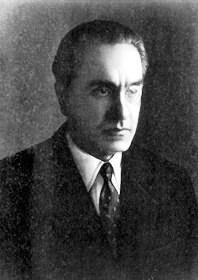Julius Evola: Citáty v angličtine

“Neither pleasure nor pain should enter as motives when one must do what must be done.”
Zdroj: Ride the Tiger: A Survival Manual for the Aristocrats of the Soul
American "Civilization" (from "Civilta Americana") http://lkwdpl.org/wildideas/mysticalgeography.html
Interview with Julius Evola, in Ordine Nuovo (1964) https://web.archive.org/web/20140405141542/http://thompkins_cariou.tripod.com/id20.html
Gli Uomini e le Rovine (1953), p. 34
American "Civilization" (from "Civilta Americana") http://www.juliusevola.net/excerpts/American_%22Civilization%22.html
American "Civilization"
Civilta Americana (1945; 1983)
Imperialismo Pagano (1928) · Excerpts http://www.juliusevola.net/excerpts/Tradition_of_the_Mysteries_against_Christianity.html
